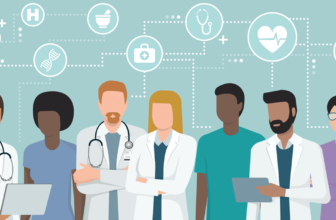
The Power of Effective Communication in Personal and Professional Life cannot be overemphasized in our modern life and day to day activities as humans.
Communication is a fundamental aspect of our everyday interactions, playing a pivotal role in shaping our personal and professional relationships. Effective communication is not just about exchanging information; it’s about understanding the emotions and intentions behind the information. In both personal and professional settings, strong communication skills are essential for building trust, helping in fostering collaboration among individuals, and achieving success. In this article let’s look into the significance of effective communication and provide insights on how to enhance communication skills for a more fulfilling personal and professional life.
The Impact of Effective Communication in Personal Relationships
In personal relationships, communication serves as the primary means of expressing thoughts, emotions, and needs. It plays a crucial role in establishing intimacy, resolving conflicts, and building a strong foundation for lasting relationships. When partners communicate openly and honestly, they create an environment of trust and understanding, which forms the cornerstone of a healthy relationship. Effective communication involves active listening, expressing empathy, and conveying one’s thoughts and feelings in a clear and respectful manner.
Active listening is a critical component of effective communication in personal relationships. It involves giving undivided attention to the speaker, understanding their perspective, and responding in a way that demonstrates understanding. By actively listening, individuals can create a supportive and validating environment, fostering deeper connections and mutual appreciation. Additionally, expressing empathy and understanding the emotions of a partner contributes to a more harmonious and fulfilling relationship.
In conflict resolution, effective communication is indispensable for reaching mutual understanding and finding common ground. When conflicts arise, the ability to communicate assertively yet empathetically can prevent misunderstandings from escalating. It allows partners to address issues constructively, identify shared goals, and work towards mutually beneficial solutions. By practising effective communication strategies, couples can strengthen their bond and overcome challenges more effectively.
The Role of Communication in Professional Success
In the professional sphere, communication skills are vital for leading teams, collaborating with colleagues, and engaging with clients. Effective communication fosters a positive work environment, facilitates efficient teamwork, and enhances productivity. Whether it’s delivering a presentation, negotiating a deal, or simply interacting with coworkers, the ability to communicate effectively is a defining factor in professional success.
Clear and articulate communication is imperative for conveying ideas, instructions, and feedback in the workplace. When leaders communicate with clarity and precision, they inspire confidence, provide guidance, and foster a sense of purpose among their team members. Employees who communicate effectively can articulate their thoughts, express concerns, and contribute meaningfully to collaborative projects. As a result, organizations benefit from improved morale, enhanced problem-solving, and increased innovation.
Moreover, effective communication skills are invaluable in client interactions and business negotiations. The ability to convey compelling messages, understand clients’ needs, and build rapport through effective communication can lead to stronger business relationships and increased client satisfaction. Whether it’s through written correspondence, verbal communication, or nonverbal cues, professionals who excel in communication can positively influence client perceptions and contribute to business growth.
Strategies for Enhancing Communication Skills
Enhancing communication skills is a continuous process that involves self-awareness, practice, and a willingness to adapt to different communication styles. Here are some strategies for improving communication skills in both personal and professional settings:
1. Active Listening: Practice active listening by maintaining eye contact, nodding to show understanding, and paraphrasing to confirm comprehension. Avoid interrupting and genuinely pay attention to the speaker’s words and emotions.
2. Effective Expression: Work on expressing thoughts and feelings clearly and concisely. Use “I” statements to convey emotions and avoid accusatory language to minimize defensiveness in the listener.
3. Empathy and Understanding: Cultivate empathy by acknowledging others’ perspectives and emotions. Understanding the underlying feelings of others can create a more empathetic and supportive communication dynamic.
4. Nonverbal Communication: Pay attention to body language, facial expressions, and gestures, as they often convey as much, if not more, than verbal communication. Be mindful of your own nonverbal cues as well.
5. Adaptability: Recognize that different situations and individuals may require different communication styles. Flexibility in communication ensures that the message is conveyed effectively across diverse contexts.
6. Feedback and Reflection: Seek feedback on your communication style and reflect on past interactions to identify areas for improvement. Constructive feedback can provide valuable insights for refining communication skills.
7. Continuous Learning: Engage in activities that promote continuous learning and development, such as workshops, courses, and reading materials on communication strategies and interpersonal dynamics. Moreover, communication allows individuals to express their needs and desires that turns out to be a sense of validation and support in a relationship. Be it through verbal or nonverbal communication, it helps for effective expression of one’s expression which tends to create a space for partners or more individuals to be vulnerable among themselves .
By actively putting these strategies into daily interactions, individuals can enhance their communication skills and cultivate more meaningful connections in personal and professional realms.
In conclusion, effective communication is the linchpin of successful personal relationships and professional endeavors. It empowers individuals to connect authentically, collaborate harmoniously with others. By honing communication skills through active listening, empathy, and clear expression, individuals can navigate the complexities of human interaction with confidence.
The power of effective communication lies in its ability to forge bonds, resolve conflicts, and pave the way for mutual understanding and growth, both personally and professionally.
“Listening is an essential component of effective communication. By actively listening to others, we can build stronger relationships, gain a deeper understanding of different people’s perspectives, and avoid misunderstandings. However, listening is a skill that requires practice and effort. It’s not just about hearing the words spoken by another person, it’s about truly listening to what they’re saying and making an effort to understand their perspective.
There are other ways and methods we can use to improve our communication skills. First, we should strive to be clear and concise in our communication. Using straightforward language and avoiding jargon can help ensure that we are understood by others. Second, we should try to avoid distractions and be fully present when communicating with others. Putting away our phones and focusing on the person we’re speaking to can help us build a stronger connection. Finally, we should ask clarifying questions to make sure we’re understanding the other person correctly.







